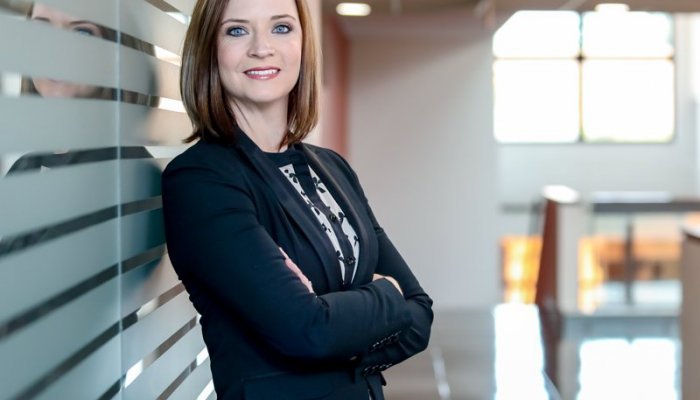It was already an award-winning offering, so when GIBS decided to refresh its MBA programme, the intention was to make an excellent product even better.
Hayley Pearson, the executive director of faculty at GIBS, recalls that the need for a redesign became clear early in the research phase. “We had received input from various accrediting bodies and a variety of sources that our programme was very traditional in how it was designed, and that there was a lack of integration.” Over a two-year process, the whole offering, from assessment methodologies to subjects, was appraised.
Pearson and colleagues reviewed outcomes and what the institution wanted students to achieve. They spoke to stakeholders, business leaders, the advisory board, alumni and recruiters. They also benchmarked the business school's offering against top international institutions, looking at what was included in their curricula. This extensive exploration resulted in the design of an updated MBA that includes five core streams.
The consulting stream was designed and developed in 2019 and piloted in 2020. It aimed to respond to some of the specific focus areas that emerged in research. “Our feedback showed that students choose to do an MBA for three reasons,” says Pearson. “One is to learn how to run a business. One is to learn how to grow, and start and grow, a business. And one is to learn how to advise a business. So we saw these three pockets of MBA students who want to learn about general management, entrepreneurship and consulting.”
Because consulting can be in a variety of industries, also within a company or independently, for a start-up or established conglomerate, integration of all three streams was important. There needed to be extensive overlap so that a student in the consulting stream was exposed to the fundamentals of business and of entrepreneurship. Additionally, this integration meant that students could mix and match courses to fit their needs or interests. “We wanted to allow students to truly personalise their MBA programme. It was important for students to create the MBA that they wanted.”
In a departure from the old model, the refreshed MBA offering was an experiment of bringing the whole cohort together and also splitting them into their streams. This meant some courses and workshops were attended by all, while the consulting group had their bespoke mandatory courses and then some electives from which to choose.
Relevance for the local context
“Following the feedback and lessons learnt from the pilot programme,” says Pearson, “the current consulting focus is made up of an international management consulting module and a combination of compulsory electives such as the management consulting boot camp, the professional management consulting elective and effectual intelligence for management consultants.”
All students are required to consult to a real-life company and local and international immersions are provided to enhance the effectiveness of the experiential learning philosophy. Additionally, top local and international experts are invited to share their knowledge with the MBA classes.
Students in the consulting stream must develop a portfolio of evidence. It must reflect their own individual consulting project that's been delivered to a current business, as well as a toolkit of their own consulting models and frameworks.
The ultimate purpose of the GIBS consulting stream is not just to prepare students to become consultants. It aims to nurture the best possible kind of thinkers and doers alongside helping students improve their strategy and management consulting skills, whether they work for clients or become intrapreneurial consultants.
Danielle Meyerowitz, faculty & learning journey designer at GIBS, has worked closely on the curriculum design for the MBA. She believes the consulting stream aims to impart important skills to graduates. It’s critical for students to get real-world consulting experience so that they are well-prepared for consulting roles in business. “In fact, this focus is designed to provide students with deep insight into the consulting profession while helping them develop proficiencies in a range of skills and attributes required to kick-start their careers as a consultant. Some of the specific skills we focus on are critical thinking, problem solving, communication and presentation skills, practical application of consulting models as well as contextual awareness and agility to ensure students are able to customise their skills to the businesses and leaders in the South African and African context.”
Some students want to do academic research for their MBA, but most want to integrate, contextualise and dovetail what they’ve learned so that they can solve real-life problems. This can present them with more opportunities to bridge the gap between what they learned from the school and how they can create value for businesses.
When the pilot was scheduled, it was originally intended to be run with only 10 participants but due to demand a total of 16 students were part of this inaugural group. “Students were especially interested in gaining practical exposure, industry insights and consulting specific tools to expand their personal competitive advantage,” recalls Meyerowitz. Since then, the decision to include a consulting MBA has been confirmed by each year's intake and the stories of alumni who go on to achieve success as consultants. “In the knowledge economy, management consulting can be an extremely rewarding career to help organisations solve their problems, improve their overall performance and maximise their growth.”
Key differentiators of the Consulting MBA
Skills that are developed are required in the consulting word. These include how to contextualise a business situation and project the future, how to ask powerful value-creating questions and the value of combining a range of body of knowledge within management sciences to design semi-bespoke toolkits that solve real-life challenges.
It is a design-it-yourself offering comprising mandatory modules and electives. There are four compulsory courses that cover topics such as basic problem scoping, influencing without full authority, cultural intelligence, and solving complex challenges adaptively. Students can also pick another elective of their own choice to complement their aspirations.
Local and international immersions are included that are designed and implemented to enhance the effectiveness of the experiential learning philosophy. This includes the opportunity to consult to international companies.







